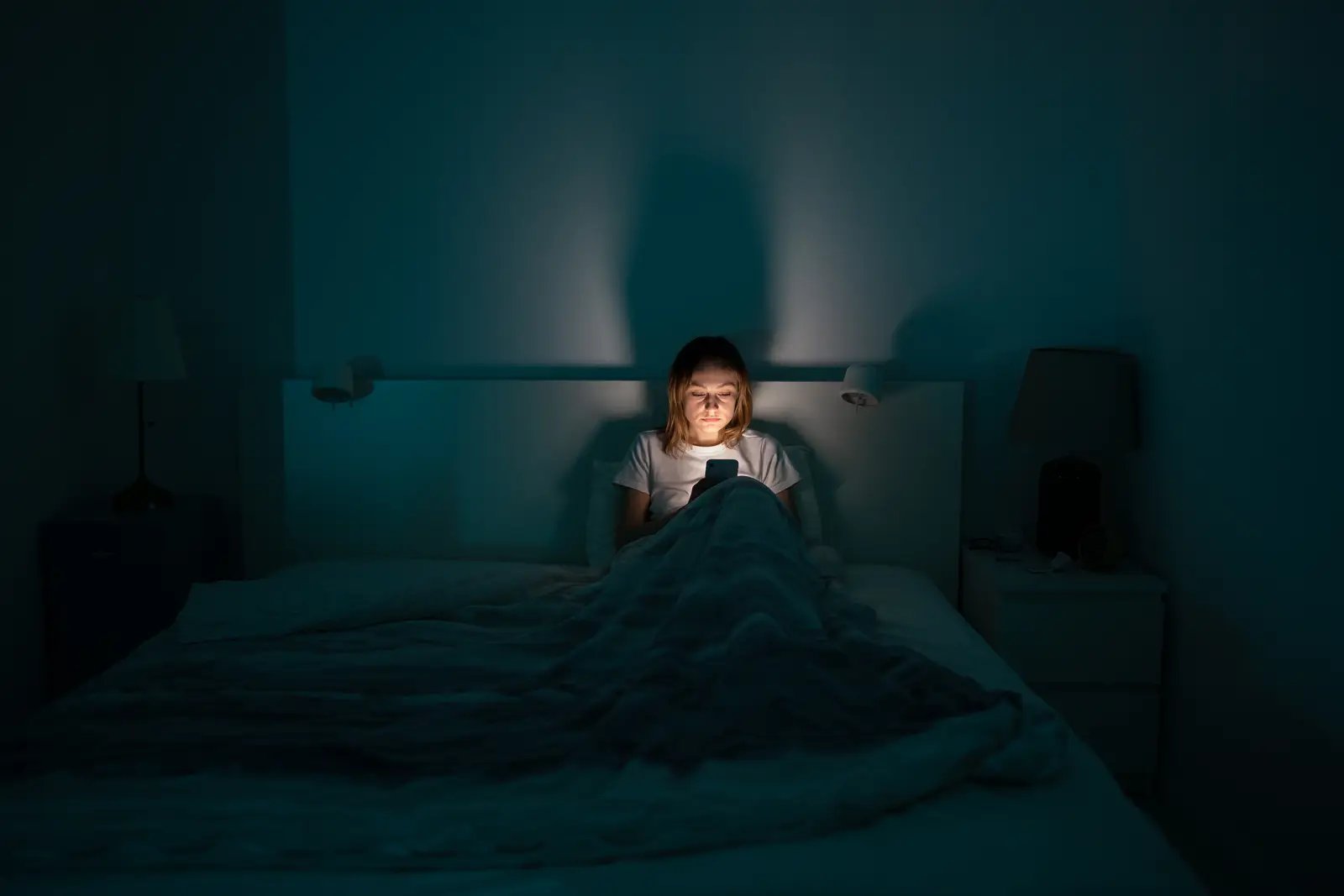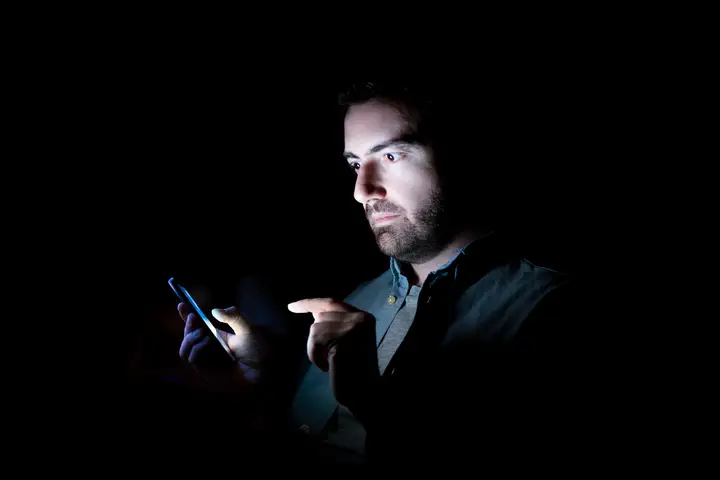Have you ever looked at your partner across the dinner table and felt a chasm between you? A quiet, aching distance that you can't quite explain? You remember the passion, the connection, the easy laughter—but now, it feels like you're navigating a landscape of broken promises, misunderstandings, and quiet resentment. You ask yourself, 'What happened to us?'
In our previous article, "How Does ADHD Affect Relationships," we explored the foundational challenges, like emotional dysregulation and rejection sensitivity. Today, we dig deeper. We’re exposing the hidden fault lines—the specific, high-impact scenarios that, when driven by undiagnosed ADHD, can silently and systematically erode the very bedrock of a partnership.
These aren't just quirks or character flaws. They are often the external manifestation of an internal neurological battle. Understanding them isn't about placing blame; it's about finding the map that leads you back to each other.
Pro Tip: At the end, take our Empathy Bridge Challenge.
1. The Self-Medication Spiral: Addiction & The Cycle of Broken Trust ❤️🩹
The Scenario: You have a beautiful life together when they are sober. They are loving, present, and the partner you fell in love with. But then, the cycle begins again. Despite rehab, detox, or heartfelt promises, they relapse into substance misuse. Bridges are burned, trust is shattered, and you’re left wondering why someone with a stable family and finances would choose this path.
The Misinterpretation: "They must not love me enough to stop." "They are selfish and don't care about the pain they cause."
The ADHD Undercurrent: This is rarely a simple choice. The link between ADHD and addiction is profound. The ADHD brain often operates with a dopamine deficit, leading to a chronic state of under-stimulation and restlessness. Substances offer a powerful, albeit destructive, shortcut to flooding the brain's reward system with dopamine. This isn't just a quest for a "high"; it's often a desperate, subconscious attempt to feel "normal," focused, or calm. This behaviour is a form of self-medication for unbearable internal chaos, often compounded by the poor impulse control that is a hallmark of ADHD.
The Relational Impact: Each relapse is a seismic shock to the relationship's foundation, creating deep cracks in trust and safety. The sober partner is left feeling like a warden or a worried parent, a dynamic that suffocates intimacy and breeds deep-seated resentment.

2. The Novelty Trap: Infidelity and the Search for Stimulation 💔
The Scenario: The discovery is devastating. Your partner has had an affair, despite having what everyone—including you—thought was a happy, stable life. You feel betrayed, inadequate, and utterly confused. They seem to have everything they need at home, so why would they risk it all?
The Misinterpretation: "I'm not good enough." "Our love wasn't real." "They are just a deceitful person."
The ADHD Undercurrent: The ADHD brain is a novelty-seeking engine. It thrives on the new, the exciting, and the risky. The intoxicating rush of a new romance—the flirting, the secrecy, the intense emotional connection—provides a massive surge of dopamine and adrenaline. This can feel incredibly compelling to a mind that finds the comfortable routines of a long-term relationship dull and under-stimulating. It’s not necessarily that the love at home is gone, but that the neurological craving for high-intensity stimulation can temporarily override logic and loyalty. Even in faithful partners, this may manifest as a "daydreaming" escape into researching odd adventures or forming intense online-only connections.
The Relational Impact: Infidelity is a profound betrayal that can shatter a relationship's core. For the partner, it creates deep wounds of self-doubt and insecurity. Rebuilding trust requires not only addressing the betrayal but also understanding and managing the underlying neurological drivers that led to the breach.

3. The Digital Escape: When Gaming Marathons Replace Partnership 🎮
The Scenario: They are a mature adult, yet they spend hours—even entire weekends—lost in video games. Attempts to connect are met with irritation or a request for "just one more level." You feel lonely, neglected, and increasingly like you’re in a relationship with a screen.
The Misinterpretation: "They are so immature." "They would rather play games than spend time with me or the family."
The ADHD Undercurrent: Video games are almost perfectly engineered for the ADHD brain. They offer:
- Constant Novelty: New worlds, quests, and challenges.
- Instant Gratification: Immediate rewards and feedback loops that provide steady dopamine hits.
- A Hyperfocus Haven: An environment where the ability to focus intensely on one thing becomes a superpower, not a problem.
For someone struggling with an under-stimulated or overwhelmed mind, gaming is not just a hobby; it's a refuge. It’s a world where the rules are clear, success is measurable, and reality's chaotic demands fade away. Compared to addiction or affairs, it may seem "safer," but its emotional cost is real.
The Relational Impact: The partner is left feeling invisible and unimportant. The emotional distance widens, and resentment builds as one partner escapes into a digital world, leaving the other to manage the real one alone.

4. The Memory Void: The Crushing Weight of Forgotten Promises 🗓️
The Scenario: They promise to handle a task, make a call, or remember an important date. And then... nothing. It's not just anniversaries; they may not even remember their own parents' birthdays. You've tried reminding them, but the pattern continues.
The Misinterpretation: "If it were important to them, they would remember." "They just don't care about my feelings."
The ADHD Undercurrent: This is one of the most painful, and misunderstood, aspects of ADHD. It is not a failure of caring; it's a failure of executive function, specifically working memory. Working memory is the brain's "sticky note"—the ability to hold information in mind while doing something else. In the ADHD brain, this sticky note is notoriously faulty. A promise made with sincere intention can be wiped clean moments later by a new thought or distraction. It’s not that you aren’t a priority; it’s that their brain has difficulty holding onto and retrieving the data associated with that priority.
The Relational Impact: To the partner, a forgotten birthday feels like a forgotten person. This pattern erodes the feeling of being valued and cherished, leading to deep hurt and the incorrect but understandable conclusion that they are simply not important.

5. The Hunter-Gatherer's Debt: Spending & Financial Strain 💸
The Scenario: They're always on the hunt for the next big thing: a classic car, a new camera, a vintage watch, the latest audio gear. They spend hours joyfully researching, becoming an expert. Then, on impulse, they make a huge purchase, straining the family finances. A few weeks later, the new item is collecting dust, and the hunt begins anew.
The Misinterpretation: "They are financially irresponsible." "They value material things more than our family's security."
The ADHD Undercurrent: The dopamine is in the hunt, not the prize. The research, the anticipation, and the thrill of the acquisition are intensely stimulating. This process engages their hyperfocus and satisfies the craving for novelty. The moment of purchase is the peak of this dopamine rush. However, once the item is acquired, the novelty fades rapidly, and the brain immediately starts seeking its next target. This cycle, driven by impulsivity and dopamine-seeking, can have devastating financial consequences.
The Relational Impact: This behaviour creates immense stress, anxiety, and conflict. The partner feels their shared future is constantly at risk, forcing them into the role of a financial gatekeeper, which breeds resentment and destroys the sense of a trusting partnership.

6. The Restless Night: When Sleep Becomes a Battlefield 😴
The Scenario: Bedtime is anything but peaceful. They toss and turn, suffer from restless legs, or can only fall asleep with the TV blaring. They are a "night owl" by nature, so you rarely go to bed at the same time. You’re both exhausted, irritable, and sleeping in separate rooms seems like the only solution.
The Misinterpretation: "They are just inconsiderate of my need for sleep." "These are just annoying habits they refuse to change."
The ADHD Undercurrent: The "A" and "H" in ADHD don't switch off at night. The ADHD brain is often a dysregulated nervous system. This manifests as:
- Racing Thoughts: An inability to quiet the mind to fall asleep.
- Physical Restlessness: A higher prevalence of Restless Legs Syndrome (RLS) and general tossing and turning.
- Delayed Sleep Phase Syndrome: A natural biological tendency to fall asleep and wake up later.
- Sensory Seeking: The need for background noise (like a TV) to provide just enough stimulation to distract the brain from its own noise.
The Relational Impact: Chronic sleep deprivation kills intimacy and fuels irritability. When bedtime becomes a source of conflict instead of connection, it creates a physical and emotional wedge between partners, leaving both feeling exhausted and isolated.

7. The Hyperfocus Hustle: The Serial Entrepreneur's Mirage 💡
The Scenario: It begins with a spark of genius, an idea so brilliant it's guaranteed to work. Your partner dives in with incredible passion, spending late nights creating plans and radiating an infectious optimism. You're swept up in the excitement, even though a familiar unease creeps in. This is the tenth "guaranteed success," and previous ventures have fizzled out due to overlooked details, a lack of administrative follow-through, and a pattern of being taken advantage of by business partners.
The Misinterpretation: "They are a reckless gambler, not a businessperson." "They never learn from their mistakes and are dragging our family's finances down with their fantasies."
The ADHD Undercurrent: This cycle is a classic manifestation of ADHD traits in the professional world. The excitement comes from the ideation phase, which provides a massive dopamine rush and a perfect outlet for creative hyperfocus. However, this is often followed by a crash when the mundane, detail-oriented work begins. Executive dysfunction makes it incredibly difficult to manage the boring-but-crucial administrative tasks, read the "small print," or create and stick to a long-term, structured plan. This isn't a lack of intelligence; it's a profound difficulty with the organizational and follow-through skills that turn a brilliant idea into a viable business.
The Relational Impact: The partner is placed in a constant state of financial anxiety and emotional whiplash. The repeated cycle of "Trust me, this time it will work!" followed by predictable failure erodes all faith in their partner's judgment. This forces the non-ADHD partner into the uncomfortable role of being the "dream-killer" or the anxious financial watchdog, creating deep resentment and a fundamental breakdown of trust in the partnership.

8. The "It's My ADHD" Shield: Explanation vs. Excuse 🛡️
The Scenario: For every issue—a forgotten task, an impulsive comment, a moment of inattention—the response is the same: "Sorry, it's my ADHD." While true, it starts to feel like a get-out-of-jail-free card, a way to avoid true accountability.
The Misinterpretation: "They are using their diagnosis as an excuse to not even try." "They don't take responsibility for their actions."
The ADHD Undercurrent: In complex relationships, it's crucial to distinguish between an explanation and an excuse. An explanation ("My ADHD-related working memory issues caused me to forget, and I am so sorry for the hurt that caused") fosters understanding. An excuse ("It's just my ADHD") can shut down conversation and imply helplessness. This dynamic can trap a couple in the Drama Triangle, where one person plays the "Victim" (to their ADHD), forcing the other into the role of "Rescuer" or frustrated "Persecutor."
The Relational Impact: When a diagnosis is used as a shield, it prevents growth and collaboration. The partner feels their pain is dismissed and that they are fighting a battle alone. True partnership requires acknowledging the ADHD while simultaneously taking responsibility for managing its impact on the relationship.

9. The Performance Paradox: The 'Workaholic' Who's Drowning 🧑💻
The Scenario: From Monday to Friday, the workday never seems to end. They are welded to the computer, compensating for tasks long after the office has closed. Shared meals become solo meals, evening chats are replaced by the frantic sound of typing, and household chores are left undone. To the outside world, they are a successful, dedicated professional. But then the weekend arrives, and it's not a time for connection, but for collapse. They sleep for hours, a human "Do Not Disturb" sign hung out, desperately trying to recharge an endlessly depleted battery.
The Misinterpretation: "They are a workaholic who cares more about their job than me. They are actively choosing their career over our family and our home life."
The ADHD Undercurrent: This pattern is rarely driven by ambition; it's driven by a desperate need to compensate. Executive dysfunction makes a typical 9-to-5 workday a nightmare. Due to time blindness and distractibility, tasks take far longer than anticipated. Difficulty with task initiation means they may procrastinate on projects until the pressure is immense. The quiet of the late evening is often the only time they can achieve the hyperfocus needed to get the work done, free from distractions. This frantic effort is often fuelled by an intense fear of failure or criticism (Rejection Sensitive Dysphoria). They aren't working late because they want to; they're working late to keep their head above water. The weekend crash is the inevitable outcome of a brain that has spent the entire week burning massive amounts of energy just to appear "normal" and successful.
The Relational Impact: The partner is left feeling like a single parent or a roommate whose needs are perpetually on the back burner. A deep sense of loneliness and resentment builds as the emotional and physical distance grows. The partner's understanding is stretched to its absolute limit, waiting for a moment of connection that is always sacrificed for one more email or one more project.

10. The Lost Masterpiece: The Talented Artist Who Stalls 🎨
The Scenario: The talent is undeniable. They can write a song that breaks your heart, paint a scene that stills the room, or craft a story that feels more real than life itself. Yet, years go by. The long nights spent honing their craft continue, but the big break never comes. Their passion is immense but it's matched by a digital chaos—a perpetually overflowing inbox where a life-changing email from a gallery or a producer might be buried under thousands of unread messages. The creative energy you once found so attractive now feels like a drain, producing exhaustion without results.
The Misinterpretation: "They must be lazy. They're just a dreamer who doesn't want to do the hard work of making a living or following through."
The ADHD Undercurrent: This is the tragic paradox of the creative with ADHD. They can pour endless hours into the hyperfocus of creation—the part that is stimulating and rewarding. However, success in the arts relies heavily on the administrative side, which is a minefield for executive dysfunction. The inability to organise, prioritise, and follow through means that crucial tasks like responding to emails, meeting submission deadlines, or networking are perpetually neglected. An inbox with 10,000 unread emails isn't a sign of laziness; it's a symptom of task paralysis, where the sheer volume of administrative work is so overwhelming that the brain simply shuts down and avoids it.
The Relational Impact: The partner is left carrying the emotional and often financial weight of an unfulfilled dream. Initial support and belief can curdle into frustration and resentment. The dynamic shifts from being a supportive partner to feeling like a nagging manager, a position that erodes intimacy and respect. The artist, in turn, feels misunderstood and deeply ashamed, unable to bridge the gap between their immense talent and their lack of tangible success.

Put Your Understanding to the Test
Reading these scenarios is one thing, but navigating them in the heat of the moment is another. The key to rebuilding is turning frustrating moments into opportunities for connection.
Do you know which responses build a bridge and which create a chasm?
Take the Empathy Bridge Challenge below to test your understanding and see how small shifts in communication can make a world of difference.
From Fault Lines to Growth: Your Next Step
If this article resonates with you, you've already taken the most important step: seeking understanding. But understanding without a clear plan can lead to more frustration. Healing truly begins with an accurate diagnosis.
At ADHD Specialist, we provide that clarity. Our Comprehensive Adult ADHD Assessment is the first step to uncovering the 'why' behind these challenges. Following a diagnosis, our expert psychiatrist creates a tailored treatment plan—including coaching, therapy, and medication options (if suitable)—to help you and your partner rebuild your connection on solid ground.
You don't have to navigate this alone. We're ready to help clients based in London and online across the UK.
References
Let’s Talk about Sex… and ADHD: Findings from an Anonymous Online Survey - PMC
How ADHD Affects Relationships: Expert Tips for Success
ADHD Planner That Actually Works | ADHD Specialist
Are Video Games the Future in Mental Health?
ADHD: Could It Be an Evolutionary Advantage?
Hobbies in ADHD - The Journey Of Not Giving Up
ADHD and Entrepreneurship: A Double-Edged Sword
Trapped in the ADHD Drama Triangle? How to Break Free
ADHD and Career Burnout: Causes, Signs & Recovery Tips
Mastering Time Management with ADHD (Tips & Techniques)
Brown Noise in ADHD - The Sound of Nature | ADHD Specialist
How Undiagnosed ADHD May Present in Adults | ADHD Specialist
ADHD Specialist - Adult ADHD & Sleep Problems Treatment London
Disclaimer: The information is not intended nor implied to be a substitute for professional medical advice, diagnosis or treatment. All content, and information, contained in this article is for general information purposes only and does not replace a consultation with your own doctor/health professional. Information about mental health topics and treatments can change rapidly and we cannot guarantee the content's currentness. For the most up-to-date information, please consult your doctor or qualified healthcare professional. For more information, you can check the Royal College of Psychiatrists (rcpsych.ac.uk)
Pictures source Pexels.com Shutterstock.com Free Stock Photos, Royalty Free Stock Images & Copyright Free Pictures · Pexels ; Stock Images, Photos, Vectors, Video, and Music | Shutterstock
.svg)
.svg)





.svg)






